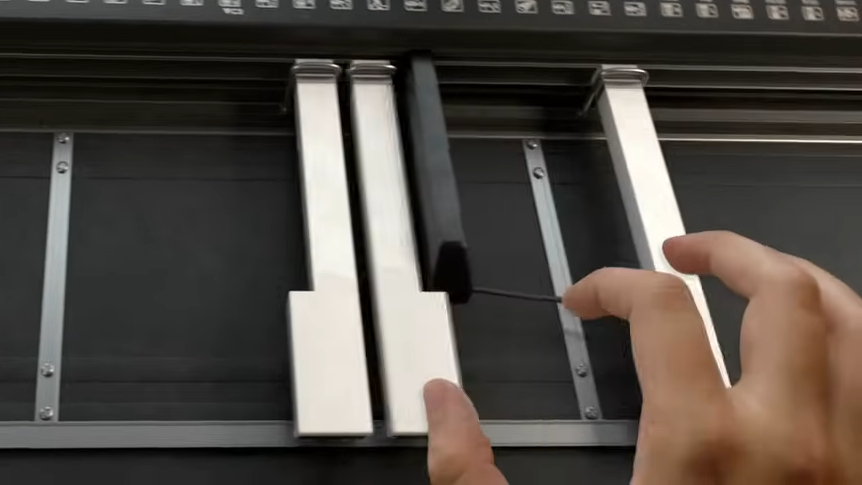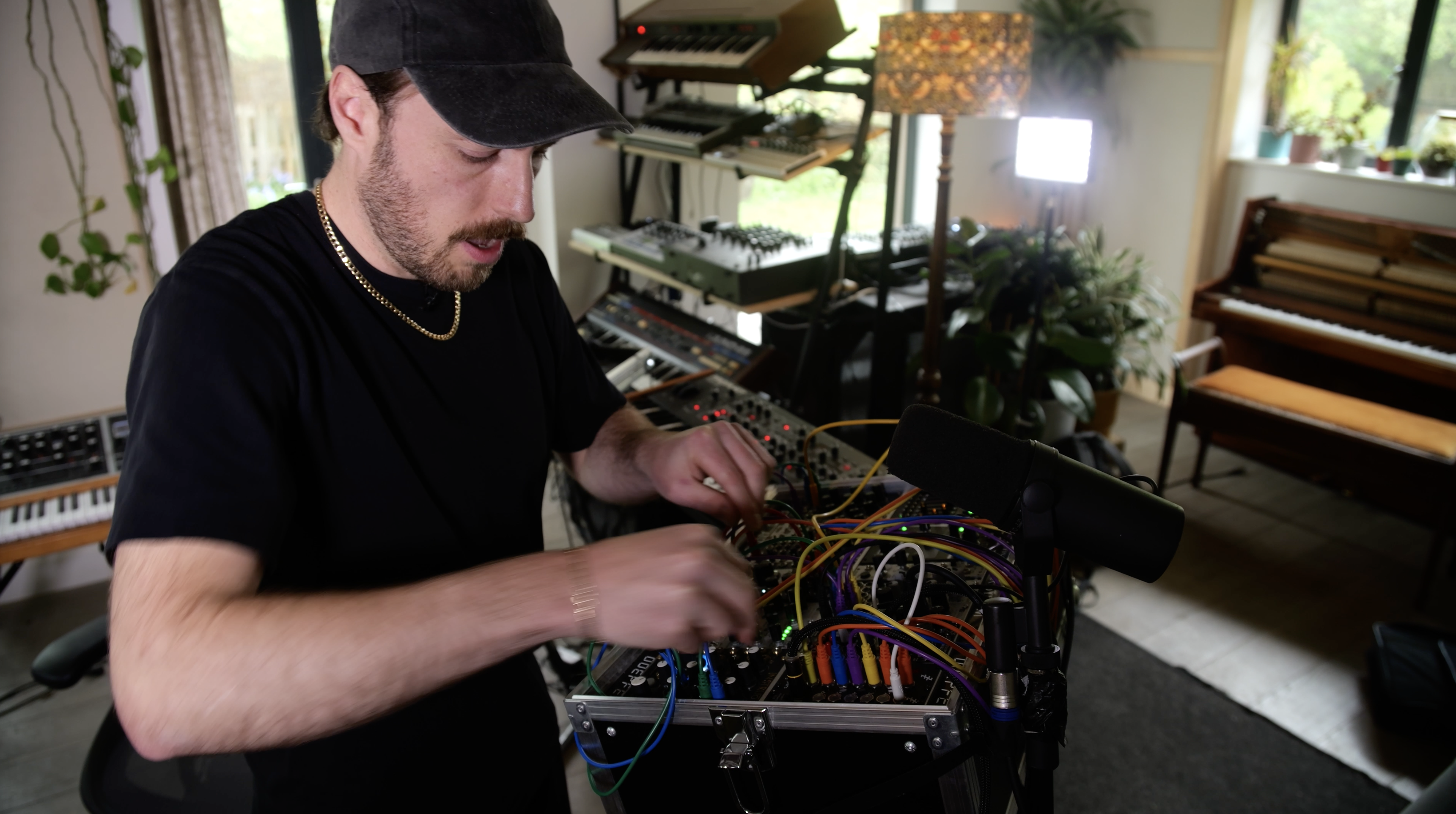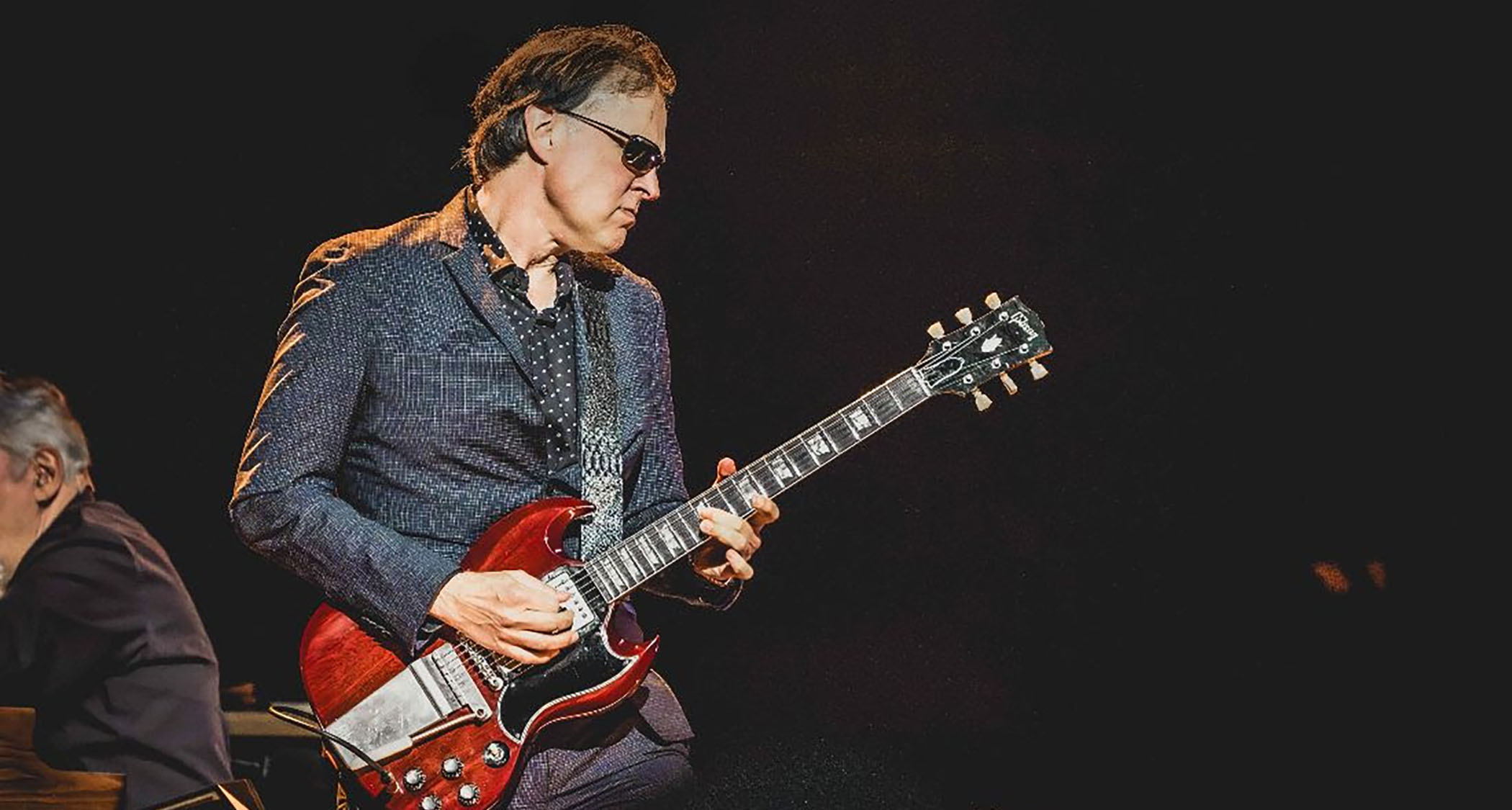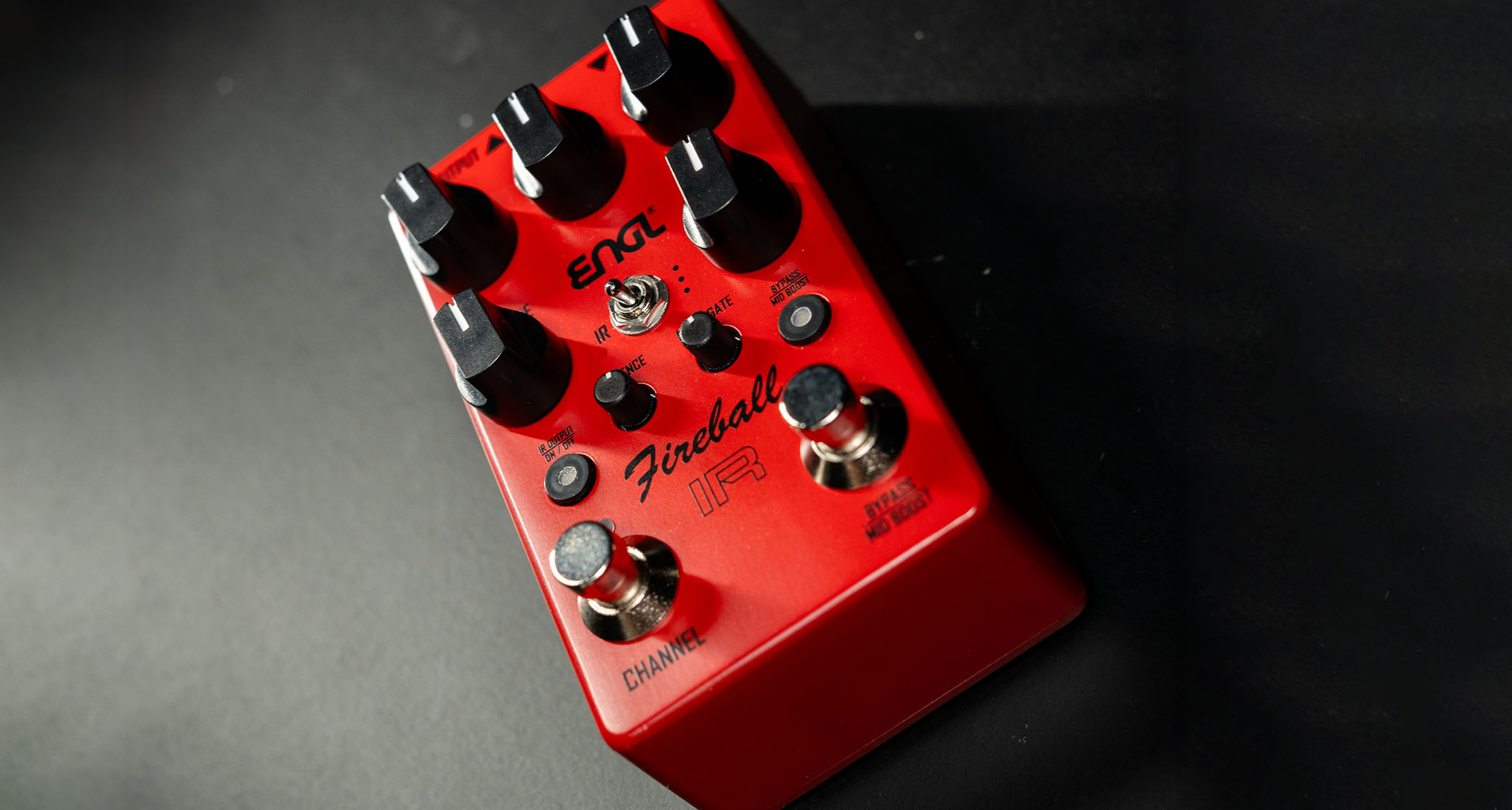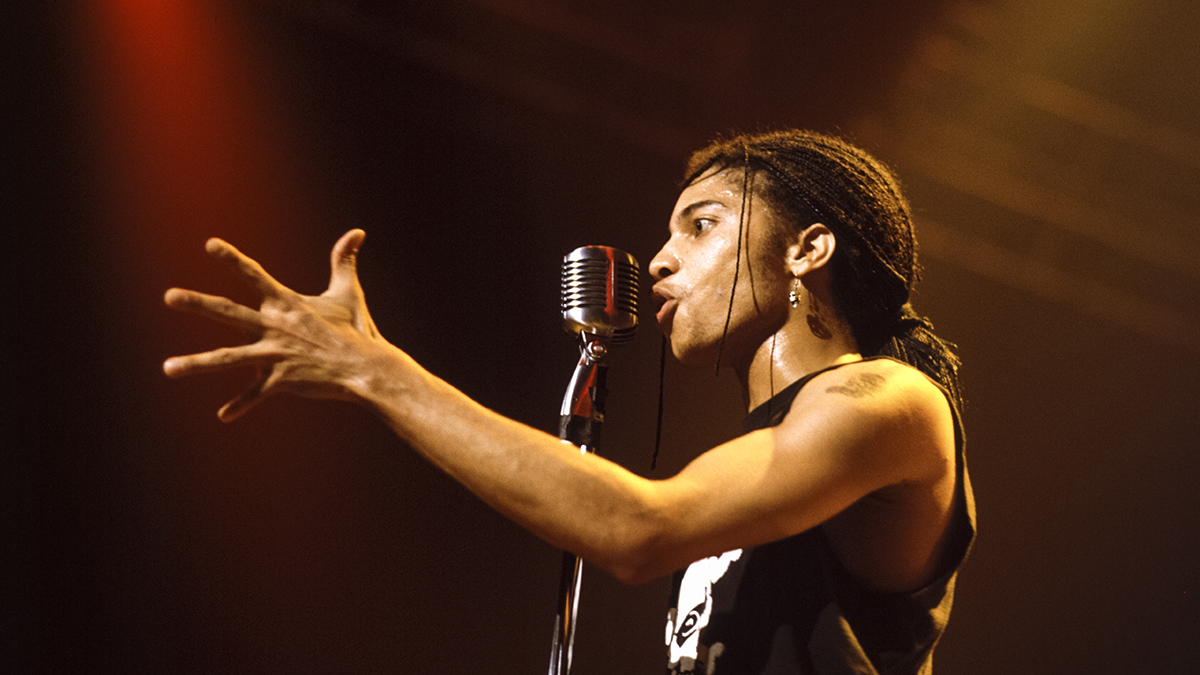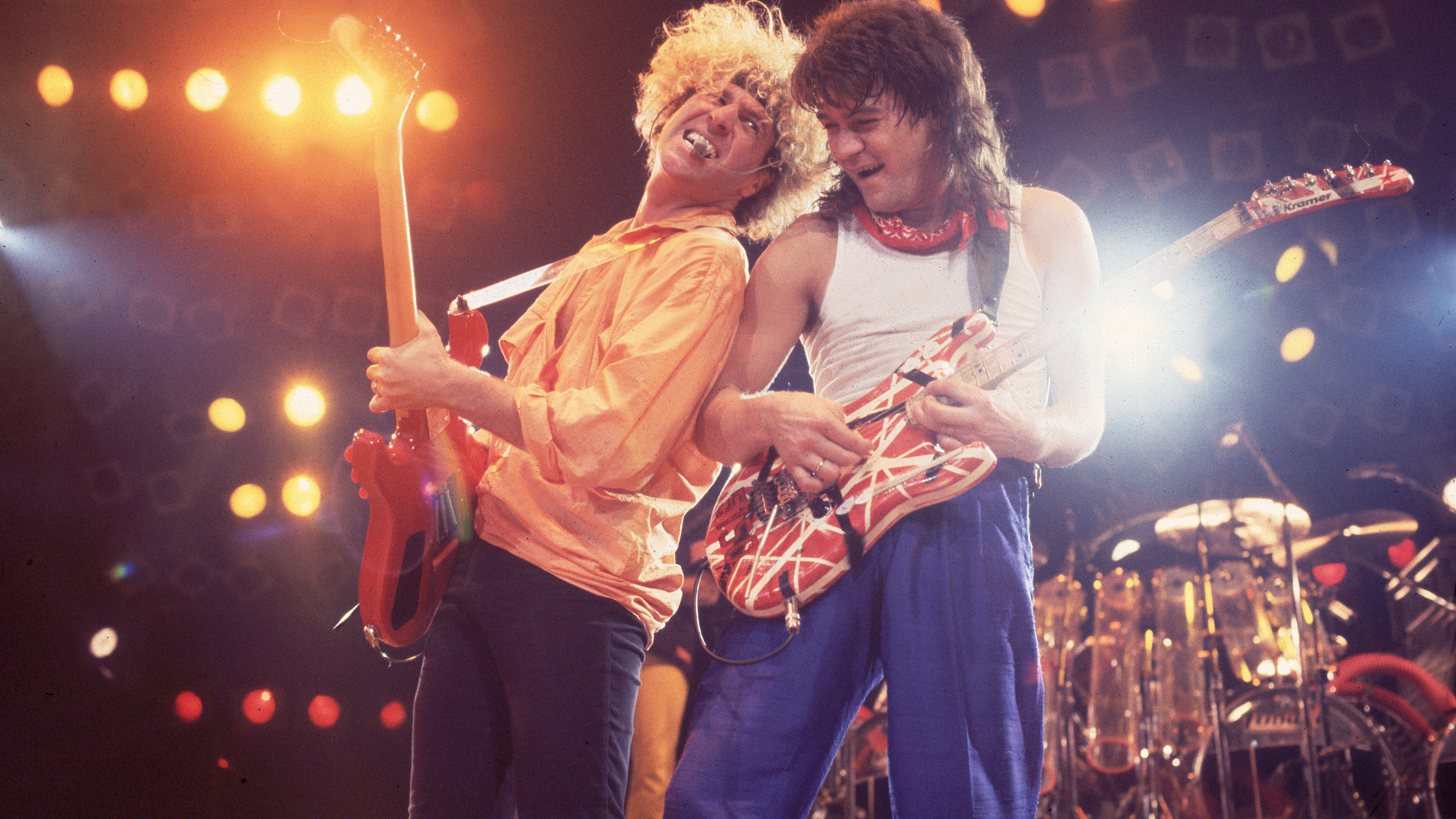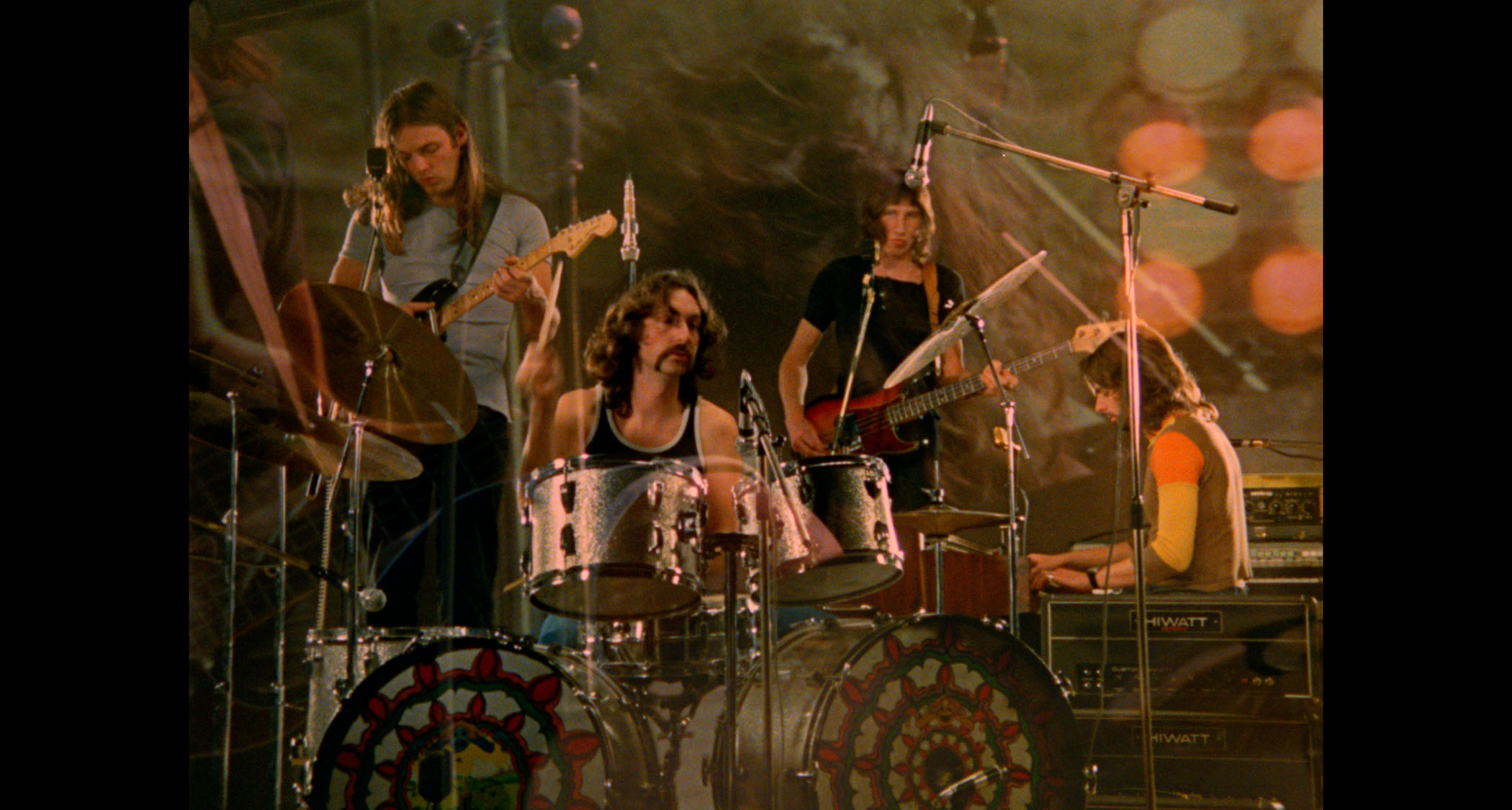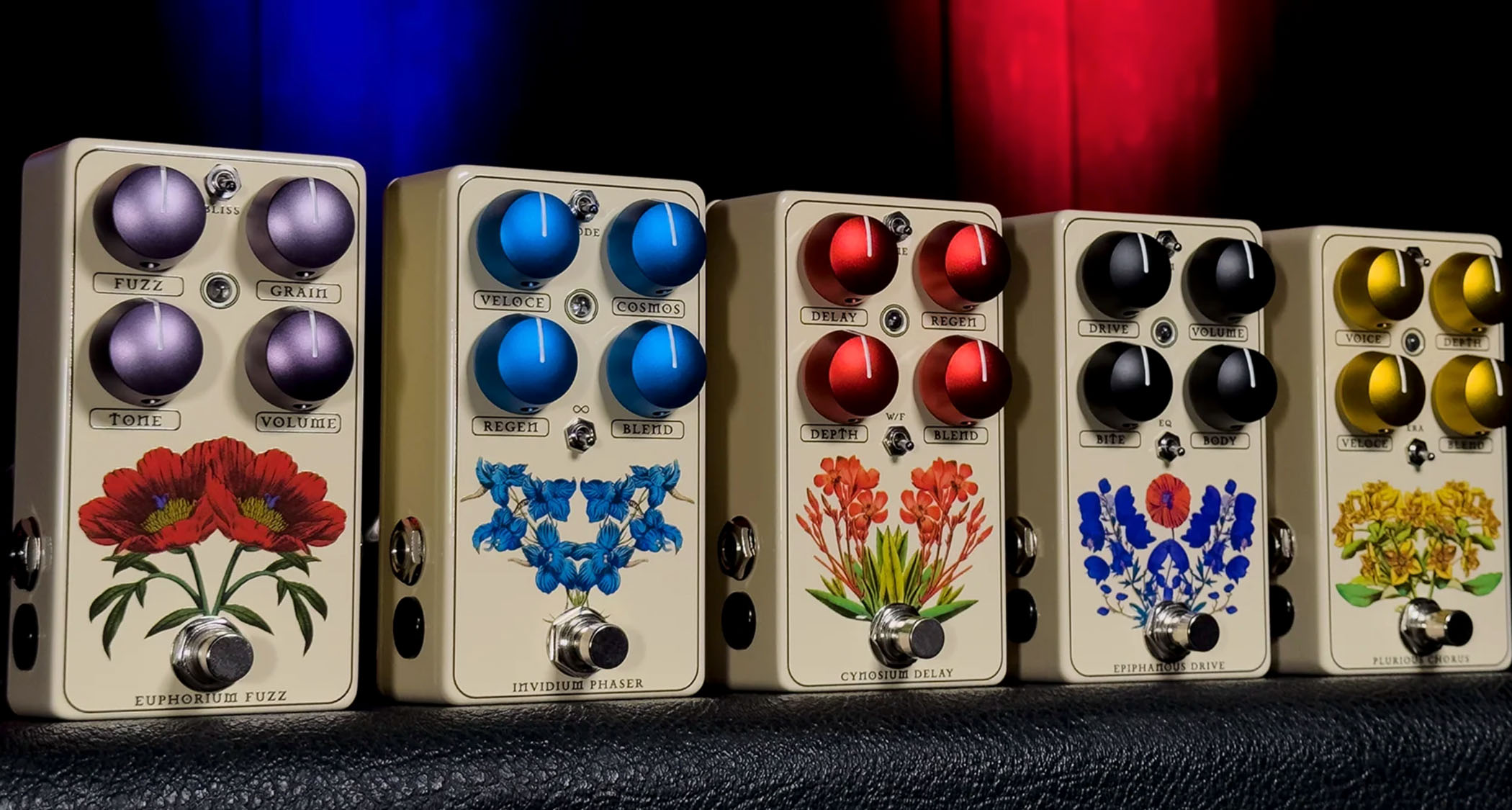"You need to find out what your strong suits are and stick with them" – 6 tips for guitarists from Intervals' Aaron Marshall
The instrumental progressive maestro has great advice to share
“Instrumental music keeps pushing further… it’s already so much further now than it was in 2010 when the scene started taking off,” says Intervals mastermind Aaron Marshall. He should know – though Intervals did have vocals on their 2014 debut, A Voice Within, it’s been very much a solo instrumental venture since its follow-up in 2015.
Fourth full-length Circadian arrived last month, with yet more progressive metal wizardry from the Canadian musician and no shortage of mind-bending tones and chops. Perhaps most impressive of all was how incredibly vocal it felt for instrumental guitar music…
“I’ve played in Japan, Taiwan, Hong Kong and India – places that feel so far away from where I’m from – and yet we can share so much through music,” he continues. “We all come together. Everyone knows every little part of the riff and can sing my solos back to me… if that’s not a testament to how universal instrumental music is, then I don’t know what is!
“I feel very liberated to be able to make this kind of music and that I’m the only person accountable for the choices I make. I like telling a story but leaving it completely open-ended for the listener. I’m never satisfied. I’m already itching to get the next album going!”
“The year is 2020 and now you can get all the sounds in your computer and it’s unfair to the wall of amps I’ve collected over the years"
On the new recordings, the guitarist stuck entirely with Neural DSP plugins – which he notes “is kinda ironic considering how long I spent re-amping on the last album”. For this musician – who, talking to MusicRadar on video chat, has a whole host of analogue pedals and amps in the room behind him, modern digital gear brings too many advantages to be sniffed at...
“The year is 2020 and now you can get all the sounds in your computer and it’s unfair to the wall of amps I’ve collected over the years,” laughs Marshall. “We used the Fortin Cali suite, which is a hotrodded Marshall vibe. The leads were the Archetype Nolly and it was the Abasi Archteype for cleans. It was all, including bass, plug-ins. The Neural stuff makes it so easy to get wild tones that suit my playing, my hands and my ideas.”
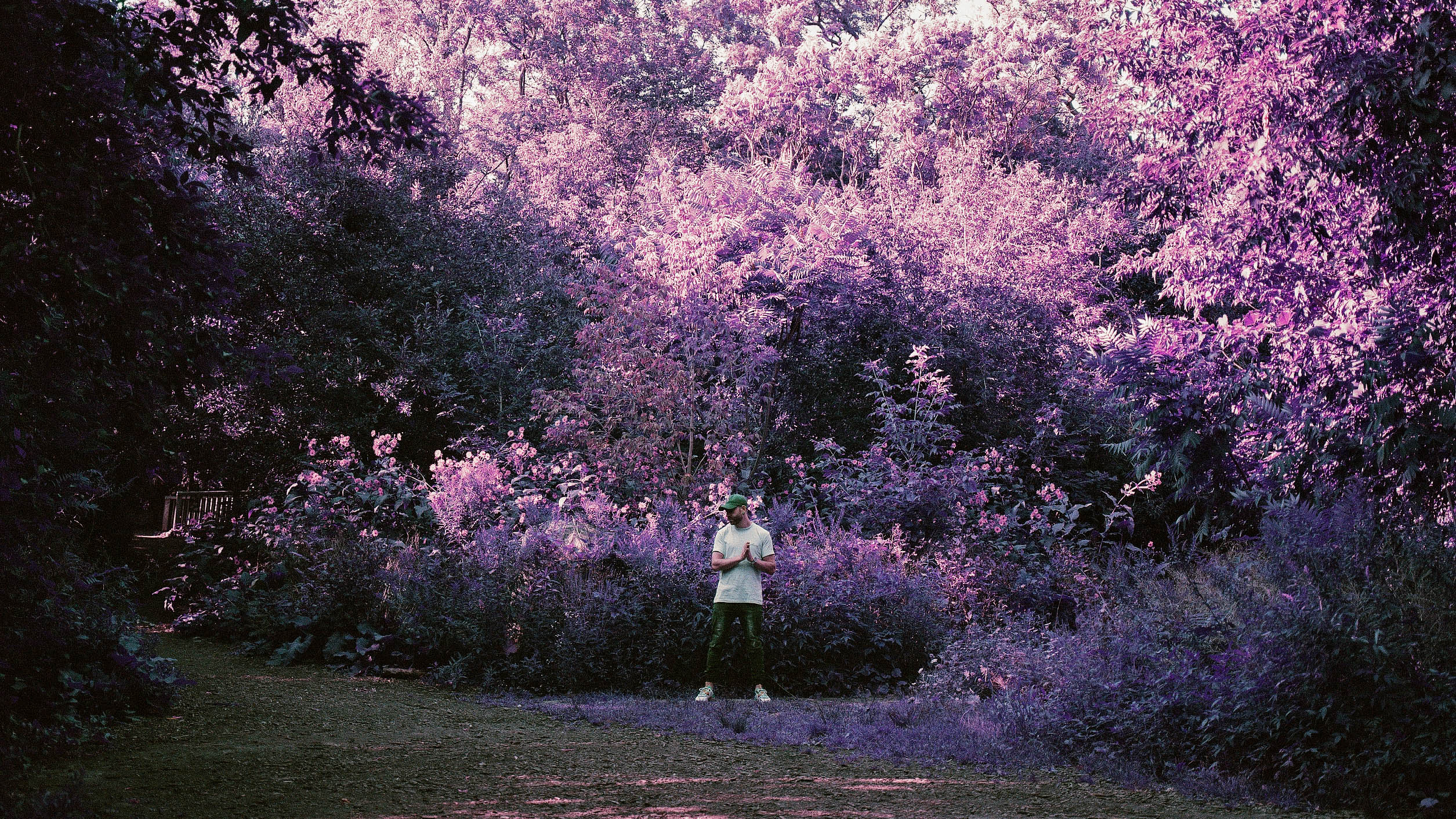
"I ended up mainly going to town on my Mayones six-string this time round, to be honest!"
The majority of the record was made using a Regius Core Mayones guitar that was actually the very first the company had made for him, alongside a Suhr Modern and Abasi seven-string. “For consistency’s sake we actually just stuck to my Regius Core model which was the very first thing they built me,” explains Marshall. “Mayones have a few irons in the fire – I actually just got something brand new for them. But essentially it was the inaugural guitar from our relationship, which has Bareknuckle Silo pickups.
Get the MusicRadar Newsletter
Want all the hottest music and gear news, reviews, deals, features and more, direct to your inbox? Sign up here.
"For texture I added in my Suhr Modern with a reverse headstock in a gun metal finish. I dropped some Silos in it and we used it for some split coil sounds and neck pickup vibes.”
“For the seven-string stuff, it was a mixture between my Abasi seven, with Tosin’s Fishman Fluence pickups, a wenge neck and ebony board. I also used my purple Mayones Regius seven-string, which is similar to the six. I find the Schaller bridge gives the guitar a unique character and specific tonal quality. But I ended up mainly going to town on my Mayones six-string this time round, to be honest!”
Here the tech-metal virtuoso offers his six tips to guitar greatness, including a couple of licks for good measure…
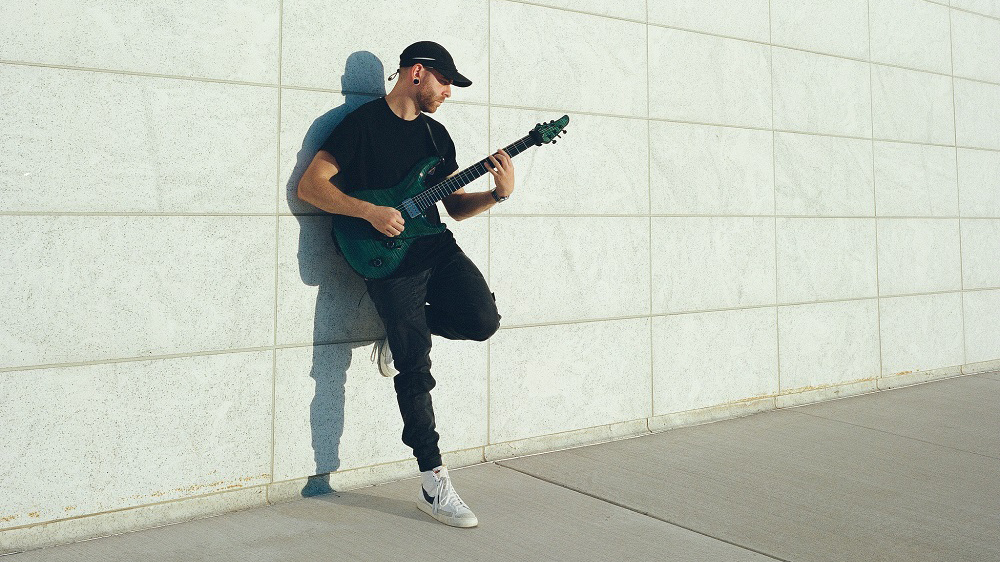
1. Play to your strong suits
“What is pleasurable about the musical experiences you have when you sit with your instrument?"
“This has been the most important thing for me, in terms of confidently and competently finding my sound and working in a way that’s productive. I’m not saying don’t practice things you aren’t good at… we all need to work on the things that we’re bad at. But in terms of developing your own sound and finding your voice, you need to intuitively listen to yourself and find out what it is that makes you tick.
“What is pleasurable about the musical experiences you have when you sit with your instrument? What stresses you out and what makes it feel like a chore versus the things that you get lost in for hours and forget to go to bed or leave the house. Those rabbit-holes are where you are going to find the most inspiration. You will be the most free you can be in that headspace...
“So you need to find out what your strong suits are and stick with them. If that’s where your inspiration lives, that’s where your songs are going to come from. You need to discern for yourself what feels rudimentary and what feels exciting.”
2. Use limitations as a weapon
"Personally, I find if there are too many options, option paralysis sets in because so many things can happen at any given moment"
“This is a sub-point to my first one. You can use those limitations as a device for finding focus and inspiration. Personally, I find if there are too many options, option paralysis sets in because so many things can happen at any given moment. I get nothing done. Creating limitation in a strategic way can give yourself confines to exist within, working within that set of parameters.
“That allows for more creativity, rather than having the overarching concept of ‘the sky is the limit’ because there are no walls to bounce off working that way. I find parameters keep me focussed, in fact the more limited I set those parameters the more creative I become… because I have to work more with less.
“It could be composing a melody on one string. The final version might not live on one string, unless I deliberately choose to keep it that way, but I might do that to initially find the notes. I might stumble across some notes or articulations that I wouldn’t have found reciting scales up and down inside the box.
“Another thing could be an objective – I might say I want to write something that sounds unpredictable or wide intervallically. So then how do you do that on guitar? One way is string skipping, so I might write a line that goes from the A-string to the G and then E, missing out the B and the D. Even just using that rule will give you intervallic jumps you wouldn’t find otherwise. Give yourself the criteria and use parameters.”
3. Experiment more and more with the notes you leave out
“I like things that move around like that, often using hybrid picking"
“I like to use fragmented interval jumps. For example, I might play E on the seventh fret of the A-string, going up an octave to the G-string, back down a fourth to the ninth fret on the D-string, then slide from the seventh to the eight frets on the B-string followed by the 10th fret on the high E. Then I might play the eighth and tenth frets of the B-string, climbing to seven, 10 and 12 on the high E and then coming back down on the eight and seventh on the B, ninth on the G and D-strings and finishing with a slide from the seventh to the ninth on the G-string, ending on a root note.
“I like things that move around like that, often using hybrid picking. Another thing I like to do a lot is move scale fragments through octaves. I won’t do it for long as it can sound rigid but I use it as a vehicle for motion, to get from place to place and propel myself into another shape. Again in E, I might play the seventh, ninth and tenth frets on the A-string and the ninth of the D. That fragment then repeats on the ninth, 11th and 12th frets of the G with the 12th again on the B. And again from the 12th fret of the high E.
“I also use a lot of two notes-per-string followed by one on the next ideas too. To me, it sounds so much more pleasant that your bog-standard scale runs or sweeps. I like to hear the colour in the middle, so if you take out more of the notes than you play in a scale, that can sound really interesting. Another thing I abuse is playing lines with a descending root note, Beatles-style. For some reason I’m fucking obsessed with that sound and do that a lot.”
4. Use your time wisely
Don’t be the player that goes, ‘I’m so excited to write a new riff, let’s find the right impulse response!’"
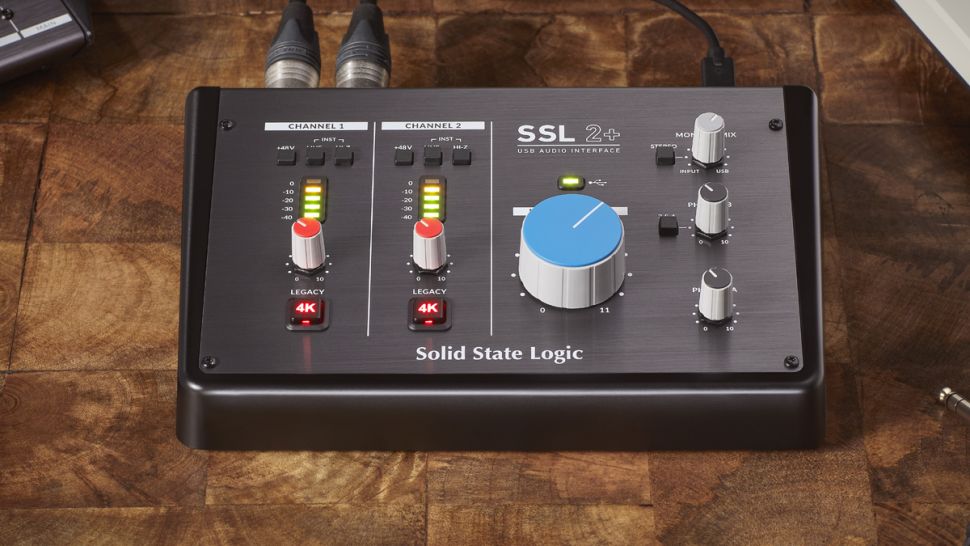
“Build your sound and spend time on tones on the days you don’t feel inspired to write. Open your favourite plugin and build on the tones you find useful. Stockpile the tool chest so that tomorrow when you feel inspired enough to build a house, you don’t have to literally assemble everything and lose all of your steam when it’s time to start stacking the bricks and mortar.
"Get your tools ready for when the energy is there and inspiration is ready to strike, so you can pulling from that stockpile without having to fuddle like ‘Shit, I left the hammer in the car!’ Don’t spend all day dialling in tones when that inspiration hits.
"Don’t bother trying to refine the snare drum, for instance, because people writing guitar music aren’t really as worried about the drum mix. Use your time wisely. You want zero resistance. Have the drums already dialled in and all your favourite clean, rhythm and lead tones. That way, when it’s go time, you are off! You don’t have to find the tone.
"Menu diving is a soul-sucker and I fucking hate it. Don’t be the player that goes, ‘I’m so excited to write a new riff, let’s find the right impulse response!’ To be completely blunt, personally speaking, that’s the musical equivalent of going soft. I don’t want to do that. It’s not a vibe (laughs)! So spar in the dojo and the fight in the arena. And I say that as someone who learned the hard way and realised I need to the least amount of time on the computer and the most amount of time on my instrument.”
5. A big blast of nostalgia will always do something for the brain
"I find the best way to channel influences is to go further backwards to things that aren’t popular right now but managed to stay timeless for you"
“Don’t write music with any trends in mind. Forget about what your peers or whatever is popular in the genre you play right now. By the time you get your music ready for release, everyone will have moved on and more importantly you don’t want to sound like a derivative.
"I find the best way to channel influences is to go further backwards to things that aren’t popular right now but managed to stay timeless for you. You will have more emotional attachment to that influence, which will ultimately lead to a more honest and genuine product I think. And it’s not really tied to a time-period, you can’t be directly compared because you are drawing from something that’s not necessarily in the limelight, at least in that given moment.
“It’s something I did deliberately for my latest record, digging further and further back. I went back to the early 2000s – the old shit that inspired me through my mid-teens to my early 20s. I wasn’t listening to Opeth… I was at Warped Tour! I grew up on a lot of skate punk and thrashy stuff. The metal I knew of was stuff like Avenged Sevenfold or Atreyu, who I found in tiny magazine columns on who to check out. I was into stuff like Rancid, Strung Out and Bad Religion but also other things like Fall Out Boy, Panic! At The Disco and New Found Glory.
“A big blast of nostalgia will always do something for the brain. It will turn on a bunch of things that haven’t wired up in a while. You will remember how much you loved things and you might impress yourself with how you remember all the little riffs and drum fills. That stuff will get you moving. If you are going to take inspiration from anything, why not go with the things that inspired you in the first place.
“So forget about what’s happening right now. You need to carve your own path and not sound like everyone else, especially in the instrumental guitar community! There’s only a handful of household names at the top of the pile, so why do what XYZ are doing? It’s more productive to go back and see what ABC were doing! My new record was very much like that, I didn’t want to make your bog-standard 2020 prog album. It doesn’t sound like Dream Theater!”
6. Prioritise your sleep and diet
“I know you’re probably reading this thinking, ‘Why is a guitar player even talking about this?!’ but if you want to wake up in the morning and write properly, you need a brain that works. You need to nourish that brain – so you need to sleep, eat and focus on your health. It’s literally giving your body the raw materials to ensure that the brain is functioning, so you don’t get brain fog and you can focus when needed. It’s all about creating the right environment and getting lost in that flow state.
“So if you want to wake up and get creative early, make sure you take your oils, probiotics and multi-vitamins and drink water instead of liquor before you go to bed. To counter that, of course I’ve written amazing riffs in the throes of a nasty hangover, but I’m not 22 anymore (laughs)! I can’t do that all the time. Before I used to slump around on a Sunday but when those slumps carried on through to Wednesdays, I started wondering what the hell I was doing. Take care of yourself. If you want to build a house, you need to nourish the temple!”
For more info on Intervals, head to linktr.ee/intervals . Aaron will also host a Music Masters Collective Session with performance, masterclass and live Q&A. Head to crowdcast.io for more details
Amit has been writing for titles like Total Guitar, MusicRadar and Guitar World for over a decade and counts Richie Kotzen, Guthrie Govan and Jeff Beck among his primary influences. He's interviewed everyone from Ozzy Osbourne and Lemmy to Slash and Jimmy Page, and once even traded solos with a member of Slayer on a track released internationally. As a session guitarist, he's played alongside members of Judas Priest and Uriah Heep in London ensemble Metalworks, as well as handling lead guitars for legends like Glen Matlock (Sex Pistols, The Faces) and Stu Hamm (Steve Vai, Joe Satriani, G3).
“He seems to access a different part of his vast library of music genre from the jukebox-in-his-head! This album is a round-the-world musical trip”: Joe Bonamassa announces new album, Breakthrough – listen to the title-track now
"There had to be some sort of telepathy going on because I've never seen spontaneous inspiration happen at that level”: The genius of Eric Clapton's controversial masterpiece, Layla

